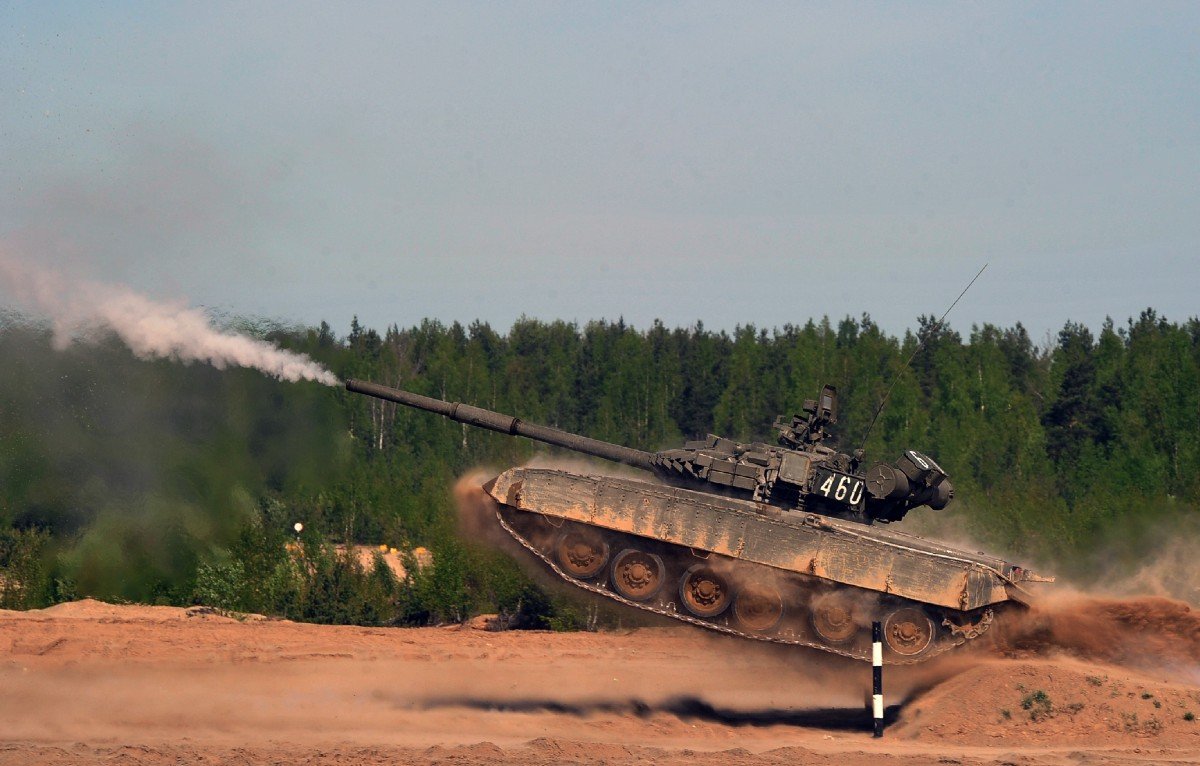Russia has routinely used the depleted uranium tank rounds that Moscow said had a "nuclear component" when donated by the United Kingdom to Ukraine, although their use in Russia's current campaigns remains unconfirmed.
On March 20, the U.K. minister of State for Defense, Annabel Goldie, said the U.K. will be "providing ammunition including armor piercing rounds which contain depleted uranium." The depleted uranium (DU) rounds would accompany the Challenger 2 main battle tanks being sent to Ukraine, she said.
Depleted uranium is a by-product of nuclear fuel, and its properties mean its high density can be used for military purposes, including in armor-piercing tank rounds. The heavy metal rounds are 70 percent more dense than lead, and self-sharpen on impact with armor, the U.K. government has previously said.
DU munitions can be alloyed with other metals, such as tungsten and titanium, and then fired at high speeds to penetrate tank armor.

"It's so dense and it's got so much momentum that it just keeps going through the armor —and it heats it up so much that it catches on fire," RAND nuclear weapons expert Edward Geist previously told the Associated Press.
"Such rounds are highly effective in defeating modern tanks and armored vehicles," Goldie said in a written statement.
The Kremlin hit back at the announcement, with Russian President Vladimir Putin saying there was a "nuclear component" to the promised munitions delivery, to which "Russia will have to respond accordingly."
But the British armed forces have "used depleted uranium in its armor piercing shells for decades," a U.K. Ministry of Defense spokesperson said.
"It is a standard component and has nothing to do with nuclear weapons or capabilities," the spokesperson said. "Russia knows this, but is deliberately trying to disinform."
"There is no nuclear escalation," British foreign secretary James Cleverly said.
Russia also maintains its own stocks of DU munitions. A U.S. Defense Department spokesperson told the Associated Press that the U.S. along with other nations, "have long possessed depleted uranium rounds as well, including Russia."
"Of course, the Russians use it [DU] extensively as well," Colonel (Ret'd) Hamish de Bretton-Gordon, who previously commanded U.K. and NATO chemical, biological, radiological and nuclear defense (CBRN) forces, told Newsweek.
"Russia certainly does possess depleted uranium ammunition, in particular high-velocity armor-piercing tank rounds which are the exact counterparts of those that the U.K. will be supplying Ukraine," military technology expert David Hambling told Newsweek. De Bretton-Gordon agreed that the Russian DU munitions "must be very similar" to Western stocks.
Since 1982, Russia has used several types of DU tank rounds, including variants of the "Svinets" rounds, William Alberque, of the International Institute for Strategic Studies think tank, told Newsweek.
Russian state media has previously publicized the upgrading of Russian main battle tanks, including the T-80BV, to be capable of firing DU rounds. One Russian expert told state outlet Tass in 2018 that the use of DU munitions did not violate any international agreements.
Russian state newspaper Rossiyskaya Gazeta similarly reported in 2018 that DU ammunition upgrades would be made for the T-72 and T-90 tanks.
There is currently no concrete evidence of Russia using DU in Ukraine, but it "would be incongruous if they're not using it," de Bretton-Gordon said. DU rounds are a "key part of their armory," he added.
DU munitions are primarily used in tank battles, of which there have been relatively few in Ukraine so far, Hambling said.
Newsweek has contacted the Russian defense ministry for comment via email.
Uncommon Knowledge
Newsweek is committed to challenging conventional wisdom and finding connections in the search for common ground.
Newsweek is committed to challenging conventional wisdom and finding connections in the search for common ground.
About the writer
Ellie Cook is a Newsweek security and defense reporter based in London, U.K. Her work focuses largely on the Russia-Ukraine ... Read more
To read how Newsweek uses AI as a newsroom tool, Click here.








